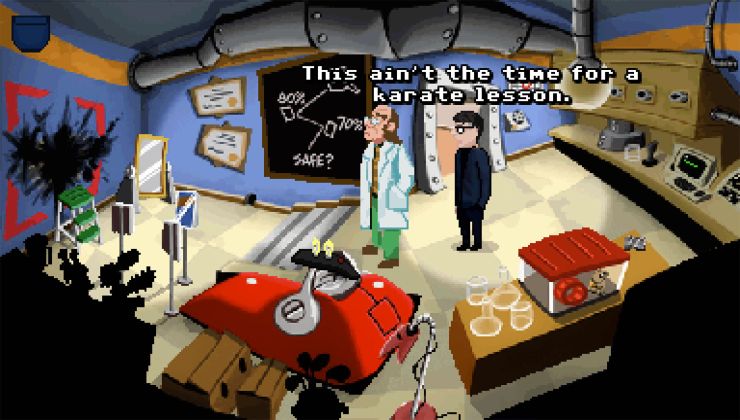With the news recently about Frog Protocols for Wayland coming from another frustrated Valve developer, now Mike Blumenkrantz has jumped in with a different proposal to speed things up.
I won't repeat all the issues but in short: Wayland Protocols take too long to be developed, reviewed and actually made into a real thing due to various governance problems. So in a fresh blog post titled "My Wayland Your Wayland Our Wayland", Blumenkrantz announced their new proposal that essentially boils down to adding in an official "experimental" stage for protocols.
As detailed in the currently open Merge Request:
wayland-protocols has struggled with development practices for many years. This stagnation typically comes in two flavors:
- barrier to entry
- review hell
By adding a third stage of protocol lifetimes, the "experimental" stage, the barrier to entry for new protocol development can be lowered, and momentum can be established in order to carry new protocols through
staging/tostable/and broad adoption.tl;dr:
experimental/- breaking changes allowed, iterative developmentstaging/- no breaking changes allowed, protocols are versioned, fewer changes expected, begin deployment/testingstable/- no breaking changes allowed, versioning is still permitted, no changes expected, safe for production use
Blumenkrantz goes into a fair bit more detail on how it would work, and it does sound like a promising idea, along with a change to how other developers involved will "vote" on if they think it's good or not that will hopefully prevent experimental protocols sitting forever never getting properly reviewed.
Additionally it looks like both Daniel Stone and Mike Blumenkrantz have been accepted into Wayland Protocols governance as members of Mesa.
What would we do without ValveWell, I would be flipping burgers I think....
That's an elegant solution, more inteligent than the frog protocol solution imho.
What exactly is "more intelligent" than Frog Protocols? To a laymen like me they seem to do the exact same thing.
Last edited by Brokatt on 26 Sep 2024 at 11:32 am UTC
I'm not an expert, but as I see it.That's an elegant solution, more inteligent than the frog protocol solution imho.
What exactly is "more intelligent" than Frog Protocols? To a laymen like me they seem to do the exact same thing.
It does not bypass the Wayland consensus, yet both allow for protocol to be added faster (like frog) and the consensus to build faster (which would be problematic for frog due to bypassing the consensus at the root).
I think the consensus is a good thing, and a solution helping it grows faster is better than bypassing it. Project acting against each other by shipping protocols without looking in depth at their interaction with the rest of Wayland seems to my uneducated eye as a recipe for trouble.
I'm not an expert, but as I see it.That's an elegant solution, more inteligent than the frog protocol solution imho.
What exactly is "more intelligent" than Frog Protocols? To a laymen like me they seem to do the exact same thing.
It does not bypass the Wayland consensus, yet both allow for protocol to be added faster (like frog) and the consensus to build faster (which would be problematic for frog due to bypassing the consensus at the root).
I think the consensus is a good thing, and a solution helping it grows faster is better than bypassing it. Project acting against each other by shipping protocols without looking in depth at their interaction with the rest of Wayland seems to my uneducated eye as a recipe for trouble.
I don't think consensus usually is needed in experimental and fast evolving branches. When solutions get moved up to testing / stable then absolutely consensus is a good thing.
I'm no Wayland developer though. However it's pretty clear for anyone who have read through some of their merge requests that it's their (sometimes philosophical) governing what makes protocols stall for months and sometimes years. For example tearing protocol was a beautiful train wreck to follow from the outside. It's also pretty clear that consensus already has failed as Gnome still refuses to implement server-side decorations, even though it was voted on.
Last edited by Brokatt on 26 Sep 2024 at 12:57 pm UTC
What would we do without ValveDual boot and play games in Windows like we did in the dark ages before Microsoft pissed off Valve enough to convince them to create their own escape hatch away from Windows.
What would we do without ValveWell, I would be flipping burgers I think....
You can do that soon!
https://store.steampowered.com/app/3140430/Burger_Flipper_A_Fast_Food_Restaurant_Simulator/









 How to set, change and reset your SteamOS / Steam Deck desktop sudo password
How to set, change and reset your SteamOS / Steam Deck desktop sudo password How to set up Decky Loader on Steam Deck / SteamOS for easy plugins
How to set up Decky Loader on Steam Deck / SteamOS for easy plugins
See more from me